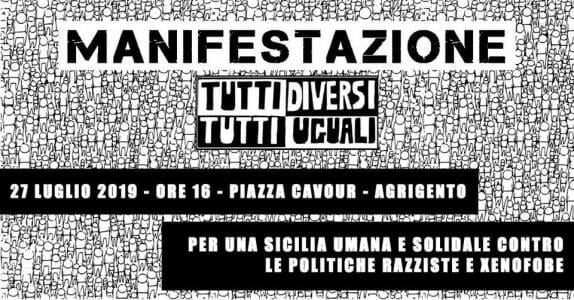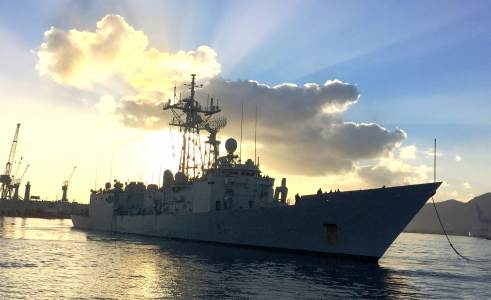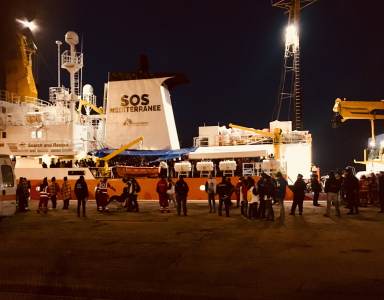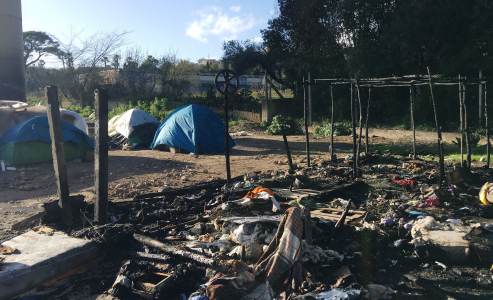Forced Stopover: The Time That Doesn’t Pass in Agrigento
We
spent a day with the migrants in the Villaggio Mosè
in Agrigento, meeting both the managers and residents. The dynamics
and practices will be familiar given that the system has generalised
them, and in many cases creates conditions which are not suitable for
living a dignified life. Our visit began with the “La
mano di Francesco”
Extraordinary Reception Centre (CAS*) on Viale Cannatello, the road
which leads from Villaggio Mosè
down to the beach. Thus, aside from a few shops and a supermarket,
there is nothing in the area.
The centre was opened in 2014
and, even though it was authorised for 60 people, the Prefect made an
agreement for 40. The same cooperative simultaneously opened two
others centres (CAS) in Naro and Palma di Montechiaro, but had to
close them in 2015, due to structural problems as well as following
protests by the residents.
The
same cooperative runs a centre of First Reception for minors, again
in Villaggio Mosè.
The centre’s paradox is that
those present there have been “parked” there since September
2014, since it was opened. In fact, at the time of writing, out of 40
people present, 15 are Bengali men who arrived on the day the
structure was opened. All of them were interviewed by the Commission
in 2015, and are currently awaiting appeal hearings, scheduled for
Summer 2017.
Another ten African asylum
seekers managed only to complete their C3 forms over 2015 and 2016,
and are awaiting hearings by the Commission.
But what is particularly strange
about the centre is that there are no only men present (despite the
agreement that there would only be men) but due to an emergency
situation the Prefecture has also placed a Pakistani family with a
young daughter in the centre, as well as a woman from Mali with a
very small child. In addition a young Nigerian woman recently
arrived, having been discharged from hospital following an operation
for apendicitis, who has been flagged up to IOM* staff. Beyond this,
amidst all the confusion there is also an Iraqi man with suspended
subsidiary protection due to being under police investigation.
There
are also five young Gambian men, witness in a case against suspected
boat drivers, who – after having spent some time on Lampedusa –
have been at
the “La mano
di Francesco”
CAS for three months, but have still not seen a lawyer nor begun any
kind of bureaucratic process, a situation about which the UNHCR have
now been informed.
It is clear, therefore, that
there is a serious problem regarding the lack of appropriate
divisions based on age and gender, even if the managing body
maintains that everyone lives together very well.
Given that the Prefecture is 7
months behind in its payments, they are starting to have problems
with distributing pocket money (already 2 months’ late), something
which had never happened before.
The
other important issue which the migrants told us about relates to the
general lack of meetings with the lawyer and the psychologist (only
two women claim to have had a meeting with the psychologist thus
far). Only
a single Nigerian mediator is present at the centre, and just for a
few hours each day. Obviously, the time passes at the slowest of
paces. The residents sit on the stairs and watch the cars drive by,
and in winter
even fewer pass by than in summer.
A few do small jobs in the supermarkets or the fields, and in summer
at the beach. For the remainder, the need to find work is very real.
We
can now turn to “Alfuras”, the only centre for minors “under
the control” of the Prefecture, financed by the FAMI* fund (a
three-yearly project for €2,600,000) and opened in March 2015. It
is managed by the A.GRI.CA
group,
which comprises the Sanitaria
Delfino cooperative,
Giostra
di Benevento,
Siparia di Gravina
in Puglia and the San
Marco
non-profit in Palma di Montechiaro. All are cooperatives which work
not only with unaccompanied foreign minors but also, as at San
Marco,
with adults.
The centre is also on Viale
Cannatello, in a rented three-storey building. We met the manager of
the cooperative, who told us passionately about how much they believe
in, and how much they push the Ministry for, transferrals within 90
days, without which their work cannot be considered adequate.
Indeed, as with other centres of
very first reception for minors, “Alfuras” ought house people for
a maximum of 90 days, but since the beginning of the Summer the
transferrals have stopped, with the result that there have been
minors present here for 6-7 months.
“We
don’t want to act like police, but we have employed procedures to
understand who in fact is an adult”, the manager told us. “Our
mission is as a centre of very first reception for minors, so adults
can’t stay here.”
A problem emerges regarding those
who have not begun their asylum claim (which ought be made in the
“second reception” centres); but given that there are no
transferrals, the residents turn 18 in the meantime and lose their
right to a personal guardian as guaranteed by law, instead risking
being shut out from the reception system altogether, becoming
invisible. During the day the centre has staff and mediators, while
at night there are only two security staff. A lawyer and a
psychologist are always on site, who underlined not only the presence
of adults, but also cases of vulnerability.
Such a long period of time at the
centre means that the residents lose the importance of living
together; this is the reason that there are always so many fights
among them, fights which the workers manage to calm down after much
effort, even if the changing conditions make their work much harder.
“Back when we worked here in more stable times, everything worked
perfectly, but now the difficulties have piled up its changed our
work, and also what’s necessary.”
Due to an ‘educational’ choice,
the centre does not give pocket money but instead provides a
telephone card every 10 days.
The day of our visit we could see
many of the young guests bust with their morning Italian lesson which
were being given by some of the centre’s staff (even if not all them
go, the residents complain that it’s always the same, and that they
aren’t making any progress); in the afternoon the only thing to do is
play with a ball or sit inside waiting for dinner.
Lots of them play football in
skippers, because playing in cloth shoes would mean ruining the only
pair of closed shoes they have, and then they would have to go out in
the slippers. “It’s not good to be seen like that. We like dressing
like the other guys our age, and don’t want people to think that
we’re cavemen.”
Alberto Todaro
Borderline Sicilia
Project “OpenEurope” – Oxfam Italia, Diaconia Valdese, Borderline Sicilia Onlus
*CAS
= Centro di Accoglienza Straordinaria (Extraordinary
Reception Centre)
*IOM = International Organisation
for Migration
*FAMI
= Fondo Asilo, Migrazione e Integrazione (Fund
for Asylum, Migration and Integration)
Translation
by Richard Braude




